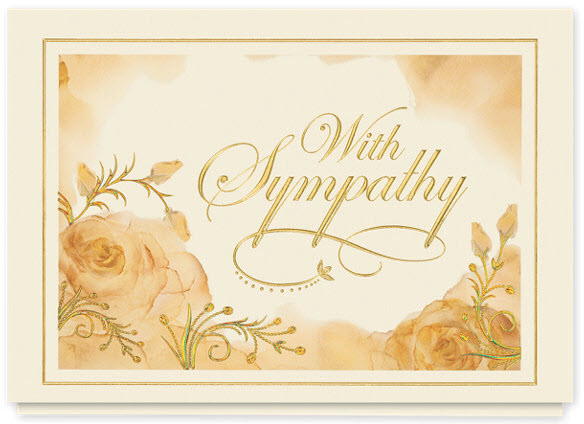Expressing sympathy when a friend or a colleague has lost a loved one seems to be difficult for many people. What should I say? Should I go to the service? If I go to the wake how long should I stay? What is the appropriate time frame to send a sympathy card? It is easy to be caught up in an internal struggle of how we should act on these occasions. We can give advice to others on all these questions but the simplest answer is, do what feels right. The simple fact that you care will be comforting to anyone.
The time frame for sending a sympathy card should be dictated by when you found out about the person’s loss. If you heard right away, say when a colleague at work is out for a death in the family, the appropriate time would be within one to two weeks. Your colleague will be most likely be back to work in that time and you don’t want the card to appear to be an afterthought as if you finally could find the time to write the card out. When you decide to send a card you should send it as close as possible to the time of loss so the person can feel this is a genuine expression of sympathy. It is also appropriate to bring a card if you are attending the wake, however, sending it a few days later is considered a good time frame.
The only time sending a sympathy card after the two week period, would be if you had just found out about the person’s loss. Sometimes we have friends who live a distance away and you may not have found out until several weeks or months later. It is then appropriate to send a sympathy card with a personal note saying you have just heard about their loss.
Many times we just don’t want to do the wrong thing and so we do nothing. It is always better to take a positive step to sincerely express your compassion and concern. People will accept any attempt a friend takes to comfort them with an open heart. Taking the step is what is most appreciated.

